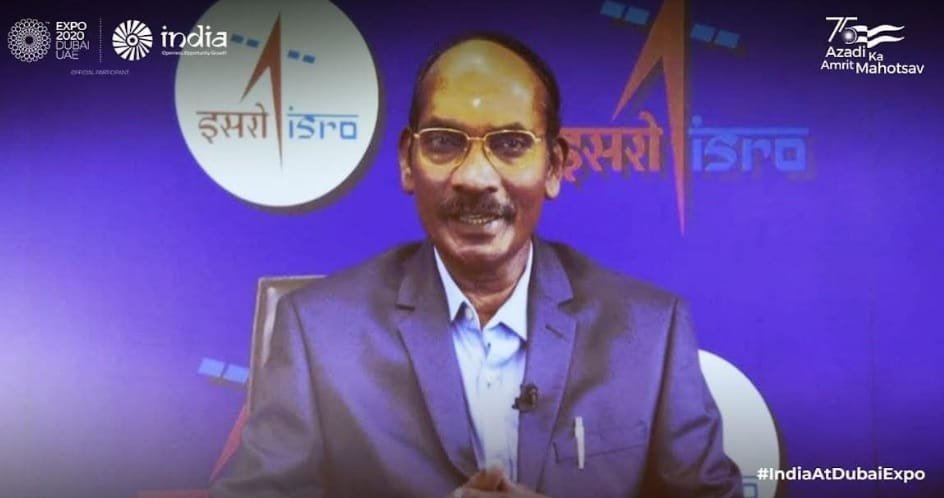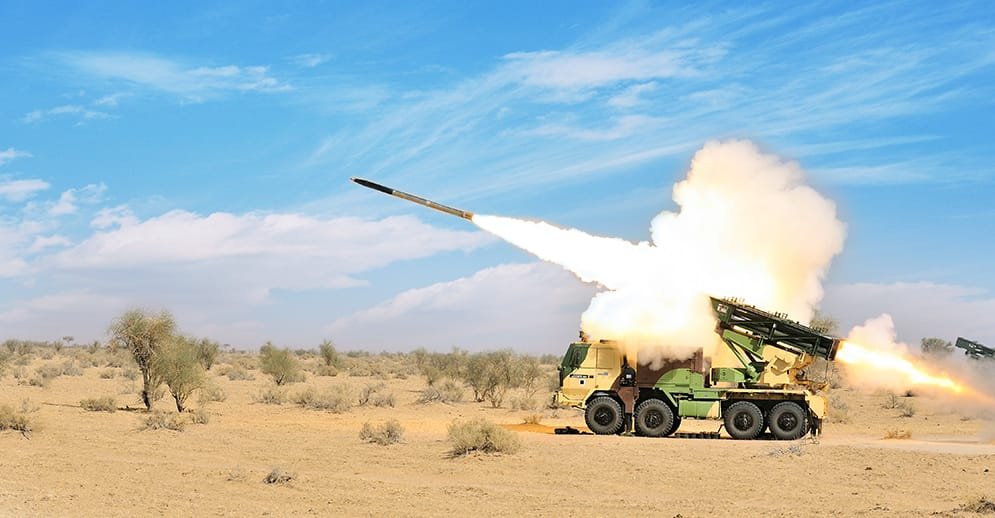Gaganyaan mission envisages humanoid flying uniquely unlike other robots, says Dev
India is revising its existing policies and is in the process of bringing in new ones to increase industry participation in the space sector, Dr. K. Sivan, Chairman, Indian Space Research Organisation (ISRO) and Secretary Department of Space, has told an international conference in Dubai on 18 Oct 2021.
Addressing the inaugural session on ‘Future of Space-International Participations & Collaborations’ at the The India Pavilion, Expo 2020 Dubai, Dr. Sivan emphasised that the recent reforms in the sector has ensured that the role of private sector has evolved from being just suppliers to partners in the process.
In his video message, Dr. Sivan highlighted that space is one of the significant areas India is looking at for international cooperation, adding, “I hope space cooperation will further strengthen with commercial and technological collaborations.” Indian industry has to play a big role in the space sector globally, said Dr. Sivan.
Highlighting the sector’s reforms, Dr. Sivan said that the government is open to inviting private players in the space sector and ISRO is tieing up with start-ups and industries.
“India is focusing on international collaborations, including bilateral and multilateral partnerships,” he added.
Dr. Sivan also appreciated the Indo-UAE engagement in space and collaborations with ISRO in space applications.
He said that the Indian industry would play a big role in space sector as involvement of start-ups and MSMEs increases in future. “ISRO has joined hands with NITI and DPIIT for encouraging start-ups,” he added.
He also emphasised on the need to make outer space safe, pointing out that it is a collective responsibility of the government and non-govt agencies to ensure that. “ISRO will be supportive of all international collaborations which benefit humanity,” he said.
India aspires to launch a dozen missions every year going ahead as against 4-5 currently, Dr. Pawan Goenka, Chairman, Indian National Space Promotion and Authorization Center (IN-SPACe), told the session. The country is working on Reusable Launch Vehicle (RLV) and advanced applications.
“India will also offer private services to other countries and cooperate with international agencies to develop innovative missions with cost-effective and agile launch vehicles. It’s a new India that is emerging in the space sector.”
Dr. Goenka said, “Global Space sector is expected to touch a trillion dollar by the end of this decade and the sector is going through a major transformation.”
He further said, “India is working on space laws and space policy to bring in industry focused approach in place of just government focused one currently.” He highlighted that the government is committed to providing an enabling environment for collaboration with national and international organisations.
He said that the formation of IN-SPACe and New Space India Ltd (NSIL) is a step in this direction, and it would change the ecosystem in India. “The evolution of start-ups in the space sector in India will lead to revolution,” he added.
Speaking at the panel discussion on the sidelines of the event, Umamaheshwaran R, Scientific Secretary, ISRO, said that by supporting the investments from private sector, India would be able to contribute significantly to the US$360 billion invested in the Space Sector globally. India is expected to contribute about US$40-50 billion by 2025.
Dr. Sam Dayala Dev, Director, ISRO Inertial Systems Unit (IISU), highlighted the importance of space robotics and artificial intelligence in the space domain. He also informed that Gaganyaan mission envisages humanoid flying uniquely unlike other robots where they get assembled in space.
Vitaly Safonov, Deputy Director General, JSC Glavkosmos, Russia, highlighted the long-term engagement with ISRO right from Aryabhatta to cryo stages.
Thomos Zurbuchen, Associate Administrator, Science Mission Directorate at NASA, highlighted the close partnerships with ISRO especially on NISAR project.
Antony Murfett, Deputy Head, Australian Space Agency informed that Australian space desires to closely work to enhance in supply chain with international collaboration.
Laxmesh BH, Co-Chair-Taskforce on Compliance and Regulatory Affairs, FICCI Space Sector & Head – Missiles & Aerospace Business & Operations, L&T Defence earlier said, “Many nations are today looking at focus on space sector as a growth strategy. It is time that countries collaborate together to bring in the required changes in the space treaties.”
The Space Week being organised by the Department of Space and FICCI will see a series of events on themes like Space for start-ups: Infinite opportunities in space, Space 2030: Space for Sustainable Businesses and Space-Building Capacity and Research Opportunities. #technology #investment #projects /fiinews.com









